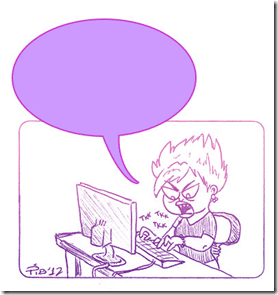I think my wife married me to compensate for her lack of a sense of direction.
I’ve always been able to navigate well without a map.
Years ago, in a time before GPS, I brought Elysha – who was still my girlfriend – to Rhode Island to visit my mother. When we arrived at my mother’s building, I suddenly remembered that she had moved across town just a week before.
In the distance, I could see my mother’s new building, a tiny speck on the horizon. We climbed back into the car, and using nothing more than my sense of direction (mostly the position of the sun), I found my way to her new home.
Elysha, who is directionally challenged, couldn’t believe that I had navigated across town without a map and had managed to find my mother’s home. This is a woman who once drove halfway across the state of Connecticut, stopped for a cup of coffee, and then drove almost all the way back home before realizing that she was heading in the wrong direction.
When she told me about this, I asked why she hadn’t noticed that the position of the sun was reversed as she drove in the wrong direction.
I think she wanted to punch me.
But as we pulled into the parking lot at my mother’s building that day, I’m not sure if I’ve ever seen her more impressed with me. I sometimes think that was the day she decided to marry me. My skills, in light of her deficiencies, were just too good to pass up.
It turns out that this disparity in our senses of direction is probably biological and therefore unavoidable. Scientists recently located the part of the human brain where our sense of direction is located and have determined that the strength and reliability of these ‘homing signals’ in the human brain vary among people and can predict navigational ability.
It turns out that my brain is just better than my wife’s brain.

